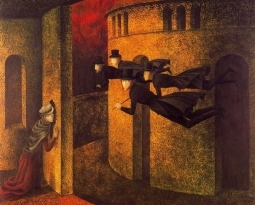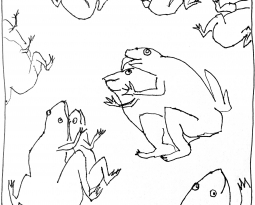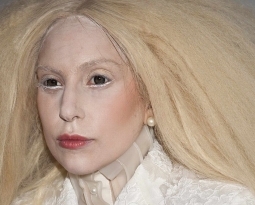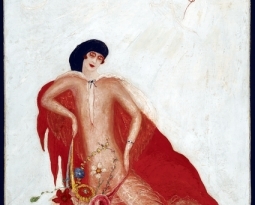5th thread: My mother’s laughter




The women sang while rinsing clothes and linens in the fountain. At last, they picked their washing in large baskets, and left, except for a mother and her daughter who were cleaning wool. They stopped singing, because it is more enjoyable in a group, and fell silent. Laughter was heard in the distance, from two women who were probably resting under the old olive tree. A sadness shadowed the mother’s face:
My mother laughed. Life is hard, especially for women. Sometimes women die when they give birth, and infants die too. Men do not cry as much as women, although they work less. My father died young. The neighbor left his house, left his wife and children to come and live with my mother. From that day, no one in the village talked to her, no one entered the house, she was not invited to ceremonies, and we had to keep an eye on the chickens or they disappeared. They said, she bewitched him, no wonder, she’s from an accursed lineage.
The laughter of my mother, there was no point in looking for its reason. She laughed because she knew how hard life is. My life is easier, but I do not know to laugh like her. It filled the whole house, nothing else mattered, the milk that spilled, winter that came too soon, the crumbling roof. Everyone heard it, as if she was laughing for us, and yet she did not do it to make us feel better, it was her response to the world. Her laughter smelt like the flowers she planted on either side of the door, as the sesame cakes she baked, as her skin, soft and warm, when she cuddled us. You do not remember, but she held you when you were born. I wish she had lived longer, to see you grow. I would have seen her love you as I love you, seen you love her as I loved her.
She said, if I sit down, who knows if I will get up again? She washed and clipped, she carded, she scratched, she served Papa. If it was hot, she would teach us to weave the leaves of the fig tree to use as a fan. In winter, she blew on our fingers and rubbed our feet to loosen the blood. She read signs in the entrails of animals and in the stars, fearing only one thing: war. She never belonged to us nor to my father who beat her all the more. I would have liked to own a small piece, but no one ever did, nobody was ever able to say, she is mine.
When I helped her with the chores, she taught me songs. She recalled right away the poems the traveling beggars sang, never to forget. You love to sing, like your grandmother. At least it passes the time, when we pick wool. Tomorrow we can wash it. After it is dry, we will comb and we will spin the wool. I love spinning. You’ll learn.
When I was a child, I would look at my mother’s life, at her man who beat her, at all this labor, all this trouble, I would think: I will never ever ever get married. Why is that so funny?





